The CORE Four: Your Secret to Smarter Studying
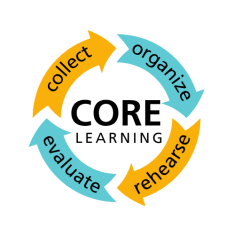
Want to get better at learning? There's a simple system that can help you study smarter, not harder. It's called the CORE Learning System—and it's built around four key moves: Collect, Organize, Rehearse, and Evaluate.
It's not just about how much you study — it's about how you study. The CORE method helps you make learning stick.
By gathering key information, making meaningful connections, practicing actively, and checking your understanding, you build strong neural networks that help you retain and apply what you learn.
Let's break it down.
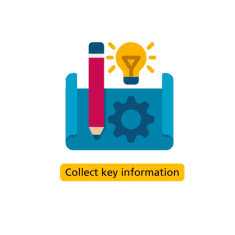
👉 C – Collect
Your brain constantly takes in sights and sounds in everyday life. But without conscious effort, most of it fades away. In college, learning begins with purposefully collecting the information and skills you need to learn. That means attending class, reading actively, taking notes, asking questions, and paying attention to what your professors emphasize. That's how you gather the information you'll need to master.
Make sure you collect what counts.
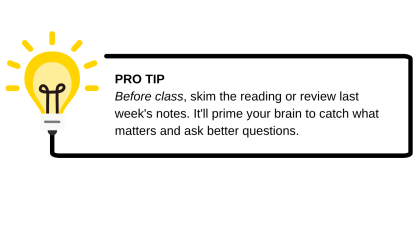
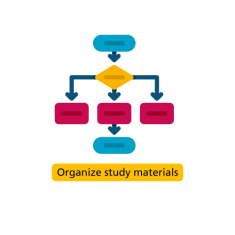
👉 O – Organize
Once you've collected the information—whether from lectures, readings, or class discussions—the next step is to organize it. Outlines, concept maps, and charts help you group key ideas, spot connections, identify gaps in understanding, and make review easy. For example, turn a dense paragraph into a concept map or create a chart to compare theories.
Collecting key information is just the first step. To make it stick, you need to organize it into study materials your brain can use.
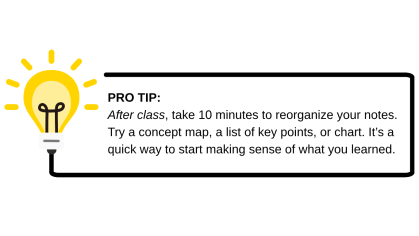
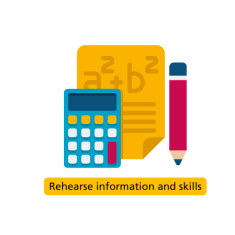
👉 R – Rehearse
Now that you've organized what you need to learn, it's time to lock it in. That's where rehearsing comes in. Practice retrieving information from memory to strengthen your ability to recall it later and apply it to different scenarios.
Don't just review it—retrieve it.
Retrieval practice makes learning stick way better than simply reviewing your notes. Use flashcards, practice problems, or explain concepts to a friend — anything that forces your brain to pull information out as opposed to just looking at it. Study in short bursts and quiz yourself often. It's way more effective than cramming.
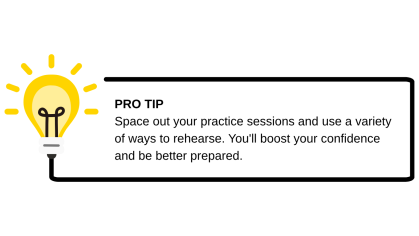
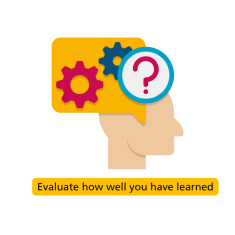
👉 E – Evaluate
The final move is to evaluate your learning. Check-in with yourself early and often: Do I understand this? Can I explain it clearly? Is there anything I need to revisit?
Effective learners use feedback to identify gaps, adjust as needed, and level up their learning.
In college, feedback often comes in the form of quizzes, papers, exams, and lab reports. Use these opportunities to identify what's sticking and what still needs work.
And don't just focus on what you got wrong. Look at the answers you got right, too. If you don't understand it well enough to explain how you got the correct answer, that's a sign that you have more work to do.
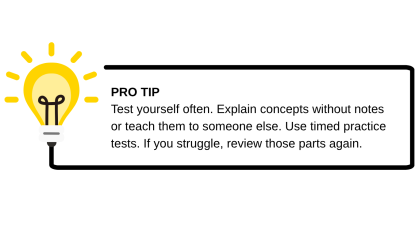
Make the CORE System Work for You
Here's the real secret: The CORE Learning System isn't a strict checklist. It's a flexible toolkit. Make it yours. Flex the CORE system to fit your brain and your goals.
Bounce back and forth between the CORE four moves as you see fit.
What matters most is building a system that works for you. Experiment. Practice. Adjust. Because once you've got your own way of Collecting, Organizing, Rehearsing, and Evaluating, you've got the tools to learn anything. And that's how you succeed—not just in college but wherever your goals take you.
References
Downing, S. (2016). On Course: Strategies for Creating Success in College and in Life (8th ed., pp. 264-266). Cengage Learning.


